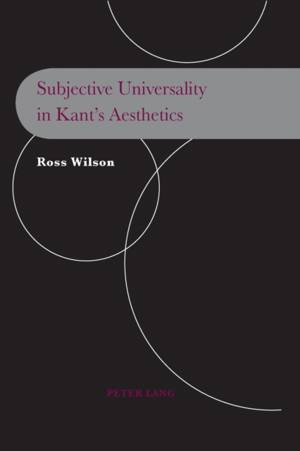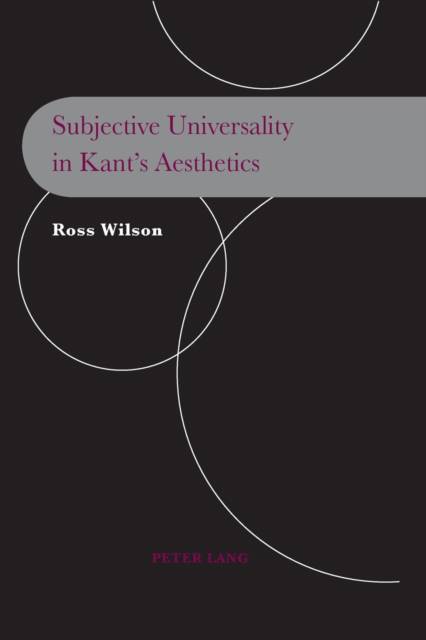
Door een staking bij bpost kan je online bestelling op dit moment iets langer onderweg zijn dan voorzien. Dringend iets nodig? Onze winkels ontvangen jou met open armen!
- Afhalen na 1 uur in een winkel met voorraad
- Gratis thuislevering in België vanaf € 30
- Ruim aanbod met 7 miljoen producten
Door een staking bij bpost kan je online bestelling op dit moment iets langer onderweg zijn dan voorzien. Dringend iets nodig? Onze winkels ontvangen jou met open armen!
- Afhalen na 1 uur in een winkel met voorraad
- Gratis thuislevering in België vanaf € 30
- Ruim aanbod met 7 miljoen producten
Zoeken
Omschrijving
Drawing on a wide range of scholarship, this book offers a new and comprehensive examination of Kant's argument that aesthetic judgements are combined with a claim to subjective universality. The author gives a detailed account of the background to this claim in Kant's epistemology, logic, and metaphysics, before closely attending to the crucial sections of the Critique of the Power of Judgement. In particular, it is shown that Kant's aesthetics requires that his theory of the subject be rethought. Central to the theory of the subject that begins to emerge from the Third Critique is Kant's enigmatic notion of 'life' which is extensively explored here. This study, therefore, thoroughly examines the central features of Kant's account of aesthetic judgements, suggesting that a new and exciting theory of subjectivity begins to be outlined in Kant's aesthetics. The author argues for the placement of Kant's account of the subjective universality of aesthetic judgement at the centre of contemporary philosophical aesthetics.
Specificaties
Betrokkenen
- Auteur(s):
- Uitgeverij:
Inhoud
- Aantal bladzijden:
- 238
- Taal:
- Engels
Eigenschappen
- Productcode (EAN):
- 9783039111060
- Verschijningsdatum:
- 6/07/2007
- Uitvoering:
- Paperback
- Formaat:
- Trade paperback (VS)
- Afmetingen:
- 152 mm x 229 mm
- Gewicht:
- 322 g

Alleen bij Standaard Boekhandel
+ 162 punten op je klantenkaart van Standaard Boekhandel
Beoordelingen
We publiceren alleen reviews die voldoen aan de voorwaarden voor reviews. Bekijk onze voorwaarden voor reviews.











